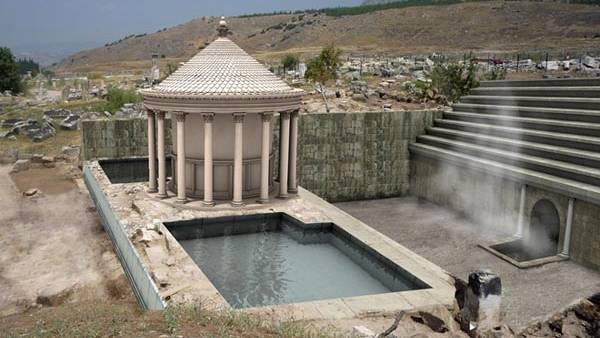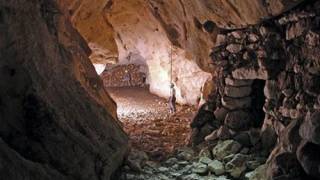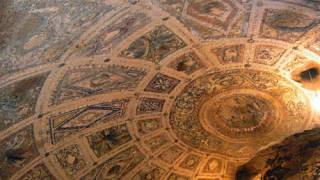Have We Found the Mythical ’Gate to Hades’?
Source: news.discovery.com

A “gate to hell” has emerged from ruins in southwestern Turkey, Italian archaeologists have announced.
Known as Pluto’s Gate -- Ploutonion in Greek, Plutonium in Latin -- the cave was celebrated as the portal to the underworld in Greco-Roman mythology and tradition.
Historic sources located the site in the ancient Phrygian city of Hierapolis, now called Pamukkale, and described the opening as filled with lethal mephitic vapors.
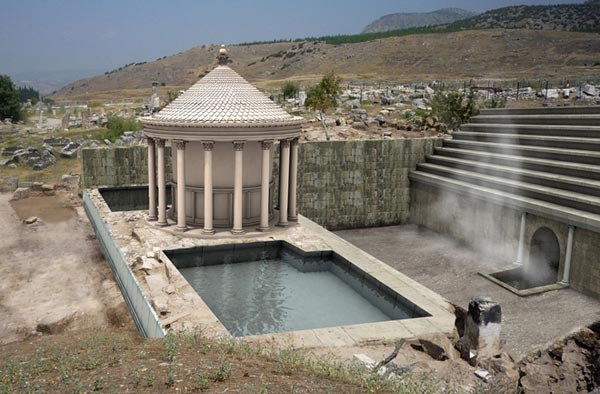
A digital illustration shows the ancient Plutonium, celebrated as the portal to the underworld in Greco-Roman mythology.
“This space is full of a vapor so misty and dense that one can scarcely see the ground. Any animal that passes inside meets instant death,” the Greek geographer Strabo (64/63 BC -- about 24 AD) wrote.
“I threw in sparrows and they immediately breathed their last and fell,” he added.
Announced this month at a conference on Italian archaeology in Istanbul, Turkey, the finding was made by a team led by Francesco D’Andria, professor of classic archaeology at the University of Salento.
D’Andria has conducted extensive archaeological research at the World Heritage Site of Hierapolis. Two years ago he claimed to discover there the tomb of Saint Philip, one of the 12 apostles of Jesus Christ.
Founded around 190 B.C. by Eumenes II, King of Pergamum (197 B.C.-159 B.C.), Hierapolis was given over to Rome in 133 B.C.
The Hellenistic city grew into a flourishing Roman city, with temples, a theater and popular sacred hot springs, believed to have healing properties.
“We found the Plutonium by reconstructing the route of a thermal spring. Indeed, Pamukkale’ springs, which produce the famous white travertine terraces originate from this cave,” D’Andria told Discovery News.
Featuring a vast array of abandoned broken ruins, possibly the result of earthquakes, the site revealed more ruins once it was excavated. The archaeologists found Ionic semi columns and, on top of them, an inscription with a dedication to the deities of the underworld -- Pluto and Kore.
D’Andria also found the remains of a temple, a pool and a series of steps placed above the cave -- all matching the descriptions of the site in ancient sources.
“People could watch the sacred rites from these steps, but they could not get to the area near the opening. Only the priests could stand in front of the portal,” D’Andria said.
According to the archaeologist, there was a sort of touristic organization at the site. Small birds were given to pilgrims to test the deadly effects of the cave, while hallucinated priests sacrificed bulls to Pluto.
The ceremony included leading the animals into the cave, and dragging them out dead.
[...]
Read the full article at: discovery.com
Known to the Romans as Pluto, Hades was the son of Cronus and Rhea. After the defeat of the Titans (the preceding generation of gods) Hades shared in ruling the universe with his brothers. Zeus had dominion over the sky, Poseidon the sea, and Hades the Underworld.
Hades’ name means "the invisible" and he was seldom spoken of directly by the living for fear his anger might be aroused. The relative lack of legends surrounding him may well be explained by the general aversion of death professed by the Greeks.
In Greek mythology the Underworld was the residence of the dead. It was presided over by the god Hades and in latter times came to be called by that god’s name. Good and bad alike traveled here upon death, there being no strict heaven/hell dichotomy as appears in orthodox Christianity. The "pilgrim" which arrived here for Socrates was most likely one’s soul, and not an ensouled body.
By tradition, this house of Hades was not viewed as a desirable place to be even for the just who did not need to fear punishment. Achilles, for example, having taken up residence upon his death in the Trojan War, said he would have preferred to live as a slave in the world of the living rather than to live free in the Underworld!
Socrates’ suggested that death was an opportunity for philosophical discussion with the greatest people ever to have lived. Hence, he did not have a pessimistic vision of the afterlife.
Source: TheOldReligion.com
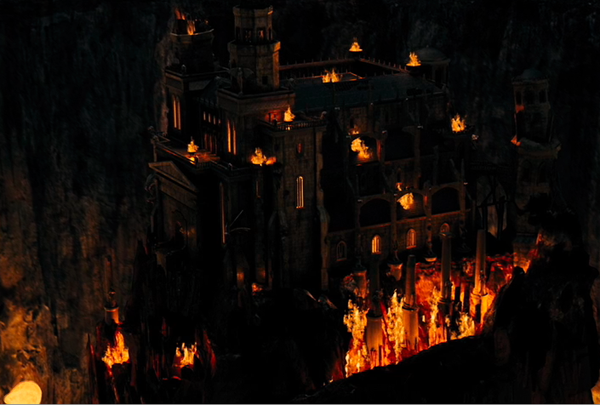
Amazingly, this isn’t the first entry to the underworld in the world. In the Karakum Desert, reports the Daily Mail, a fiery pit that’s been lit up for over 40 years has inspired visitors to Derweze in Turkmenistan—and on the Web. Geologists drilling in the area came across a natural gas cavern. Hoping to burn off the gas, they set it on fire. The flames continued to burn, leading locals to dub the site the “door to hell.”
Source
